Top 11 Cybersecurity Certifications That Will Get You Hired was originally published on Springboard.
As global spending on cybersecurity products continues to skyrocket, the rate of cyberattacks is expected to grow with it. Cybersecurity professionals are at the forefront of protecting organizations’ networks and systems and so it comes as no surprise that the information security market is steadily rising as well.
This guide outlines some of the popular cybersecurity certifications in the market, what they cover, their requirements, and some job opportunities they offer a window into.
Top Cybersecurity Certifications Companies Are Hiring For
1. Certified Information Systems Security Professional (CISSP)

CISSP is an information security certification created by the International Information Systems Security Certification Consortium (ISC)². The certification demonstrates that you can develop, launch, and maintain a cybersecurity program.
What Will You Learn?
CISSP certification covers the basics of cybersecurity. The certification defines eight domains in the Common Body of Knowledge (CBK). They are:
- Network and communication security
- Asset security
- Security operations
- Software development security
- Security and risk management
- Identity and access management
- Security assessment and testing
- Security engineering
Certification Requirements
All candidates must have five years of paid work experience in two or more of the CBK domains. Candidates with relevant education are granted a one-year waiver on this rule. After passing the exam, the (ISC)² Member Services will validate the work experience provided, and an existing (ISC)² member endorses the application.
How Can You Apply for It?
The CISSP certification is offered by Pearson VUE and costs $749. You must have a score of 700 and above to pass the CISSP exam and get certified.
2. Springboard Cyber Security Career Track

Springboard’s Cyber Security Career Track is an online bootcamp launched in partnership with CompTIA, the leading tech association globally. The program helps students prepare for the Security+ certification and transition into current IT job roles.
What Will You Learn?
The bootcamp offers a variety of cybersecurity learning material, both as theory topics, exercises, and projects, as well as career-related coursework. The topics covered include:
- Cybersecurity fundamentals
- Network security
- Identity and access management
- Applications security
- Security operations
- Host-based security
- IT project management
- CompTIA Security+ prep
Certification Requirements
This certification requires no previous cybersecurity experience. Candidates from all backgrounds are welcome. All the necessary cybersecurity skills, such as coding, are covered within the course. However, students will need to have strong analytical skills, good communication skills, and enough determination to make it through all coursework.
How Can You Apply for It?
The course is entirely online, and you can register from the Springboard website. The cybersecurity track is flexible and can be completed in six months with 15-20 hours a week of study.
3. Certified Information Systems Auditor (CISA)
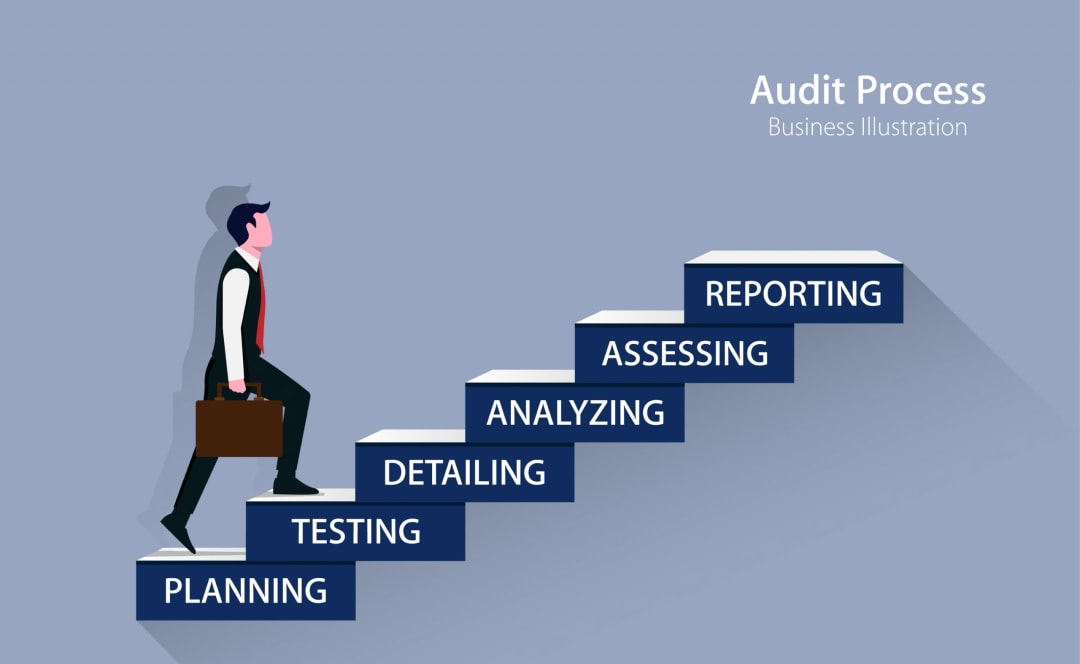
Certified Information Systems Auditor (CISA) is offered by the Information Systems Audit and Control Association (ISACA). It is given to professionals who demonstrate a strong ability to audit, control, and maintain security for enterprise information systems.
What Will You Learn?
Students have to study five job practice domains and pass the CISA exam to be certified. The domains are:
- Governance and Management of IT
- The process of auditing Information Systems
- Information Systems Operations
- Protection of Information Assets
- Acquisition, Development, and Implementation of Information Systems.
Certifiqcation Requirements
CISA candidates have to write and pass the CISA exam before they can begin the certification process. Before submitting the certification application, they must have:
- Written and passed the CISA exam within the last five years
- A minimum of five years of information systems experience in auditing, control, or security. There are several waivers available for academic equivalent experiences that the candidate can apply.
After getting certified, CISA professionals have to earn 120 CPE hours over a three-year cycle, with a minimum of 20 hours per year. They also have to pay an annual fee of $45 for ISACA members and $85 for non-ISACA members. CISA holders also have to comply with ISACA’s code of ethics and auditing standards and go through the annual CPE audit if selected.
How Can You Apply for It?
Registration is done online, and the exam can be done either in-person or remotely. The exam costs $575 for ISACA members and $760 for non-members. You must get a score of 450 and above from the 4-hour exam to pass.
4. GIAC Security Essentials Certification (GSEC)
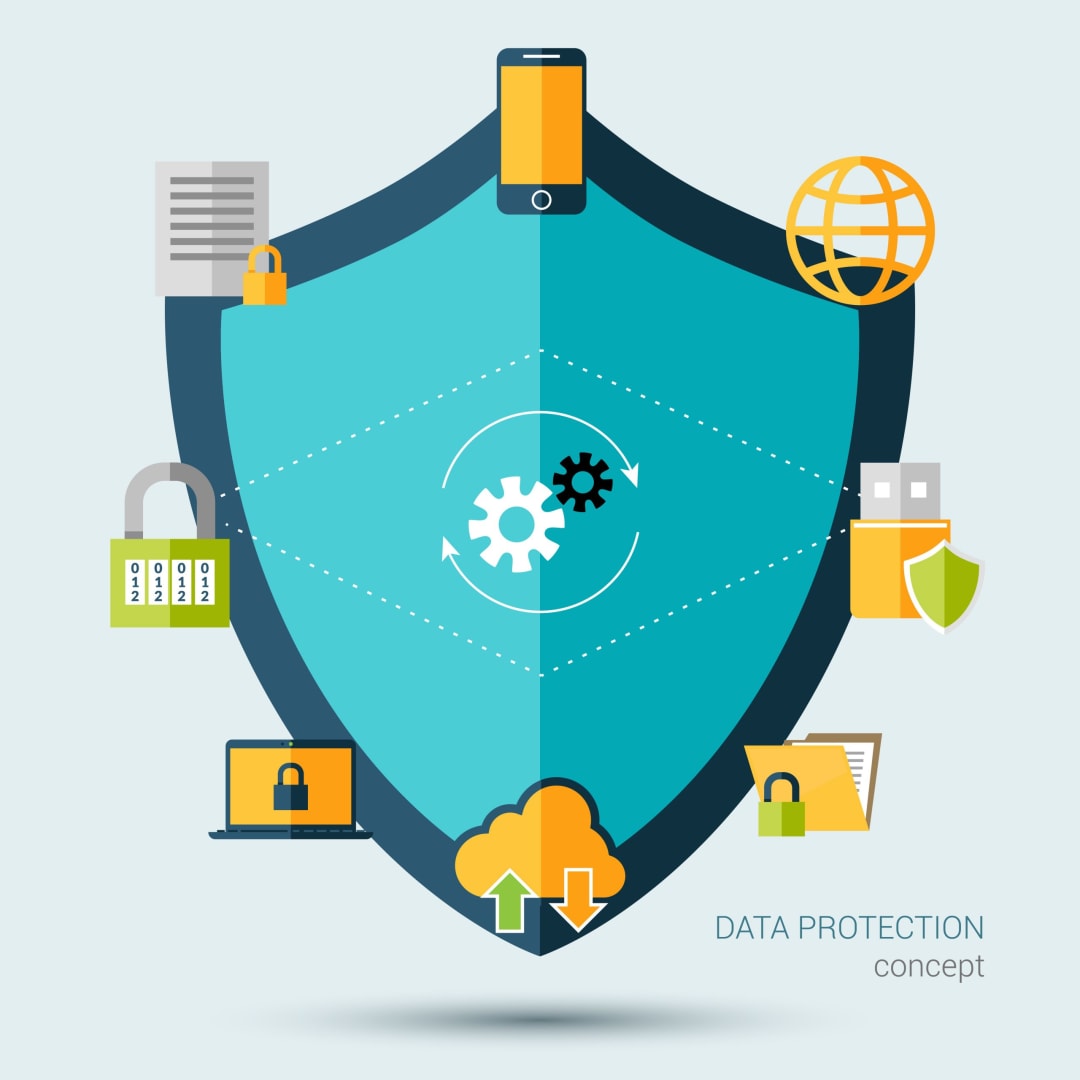
GIAC Security Essentials Certification (GSEC) is offered by the Global Information Assurance Certification (GIAC). The certification focuses on information security for professionals who need the skills to cater to modern-day computer threats.
What Will You Learn?
Some of the topics covered under the GIAC Security Essentials Certification include:
- Cryptography
- Defensible network architecture, networking security, and protocols
- Active defense, access control, and password management
- Linux security
- Web communication security
- IT risk management, contingency planning, and security policy management
Certification Requirements
There are no specific requirements for GSEC apart from the exam. GSEC requires all candidates to sit for and pass the GSEC exam. The certification lasts for four years, after which the candidates have to review upcoming material and retake the exam. Alternatively, GSEC holders can collect 36 CPE credits over the four years to qualify for certification renewal. They also have to pay a non-refundable maintenance fee of $429 once during the period.
How Can You Apply for It?
The exam is web-based and offered both remotely through ProctorU and in-person through PearsonVUE. To pass the exam, you must score over 73% on the test. The certification costs $2499.
5. GIAC Certified Incident Handler (GCIH)
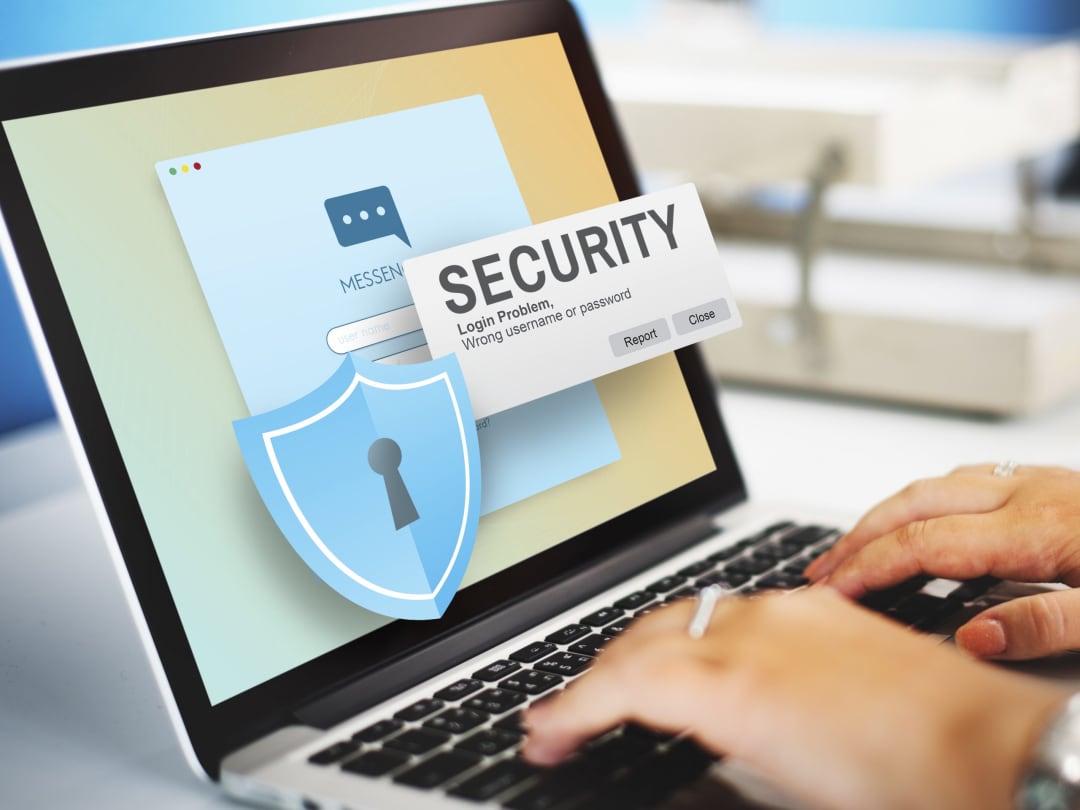
GIAC Certified Incident Handler certification is also offered by the Global Information Assurance Certification (GIAC). The accreditation demonstrates that its holder can detect, defend from and resolve computer security incidents using the wide range of skills at their disposal.
What Will You Learn?
The areas covered under GIAC Certified Incident Handler are:
- Computer Crime Investigation
- Computer and Network Hacker Exploits
- Incident Handling
- Hacker tools
Certification Requirements
Candidates have to sit for a 4-hour proctored exam and pass the minimum score of 70%. The certification is valid for four years, after which the practitioners have to renew their certification. Candidates can either retake the exam or collect 36 CPE credits to renew. They also have to pay a renewal maintenance fee of $429, payable once during the period.
How Can You Apply for It?
The exam costs $2499 and is offered on the web, through remote proctoring by ProctorU, and in-person through PearsonVUE.
6. Offensive Security Certified Professional (OSCP)
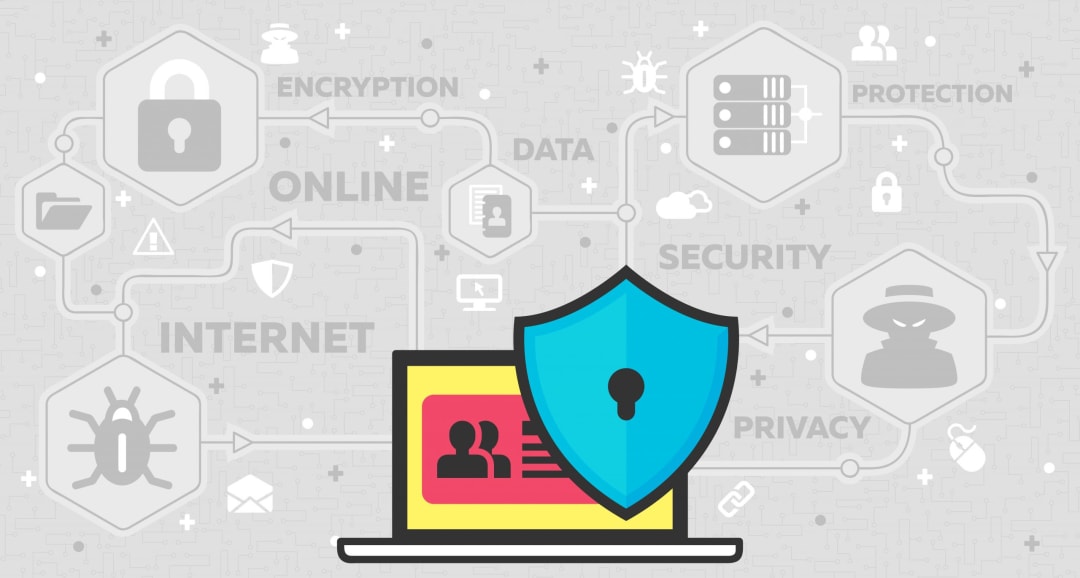
Offensive Security Certified Professional (OSCP) certification is offered by Offensive Security. Candidates have to take the Penetration Testing with Kali Linux (PWK/PEN-200) course to obtain the certificate. This is also the only pentesting certification available globally.
What Will You Learn?
The PEN-200 course covers plenty of pentesting materials and skills relevant for the OSCP certification. In this course, some of the skills you can expect to learn include:
- How to write basic scripts for penetration testing
- How to conduct remote, local, and client-side attacks
- How to identify and exploit vulnerabilities in web applications
- How to leverage tunneling to pivot between networks.
- How to gather information used to identify and analyze targets spanning various operating systems and services.
Certification Requirements
All candidates need to understand TCP/IP networking, have a basic knowledge of Bash and Python scripting, and have Windows and Linux administration skills. Unlike the other certifications in this list, OSCP certifications last a lifetime and need neither CPE credits nor certification maintenance fees.
The PEN-200 course that the students undertake prepares them for the OSCP certification exam, which is proctored and done over 24 hours.
How Can You Apply for It?
You can either apply as an individual or as part of a group or organization. The cost includes the examination fee, and various purchase and subscription options start at $999.
7. Certified Information Security Manager (CISM)

Certified Information Security Manager (CISM) is a certification offered by International Information Systems Security Certification Consortium (ISC)² for enterprise infosec managers.
What Will You Learn?
Four core areas of the CISM certification also make up the CISM job experience areas. These are:
- Infosec governance
- Information risk management
- Security Incident management
- Information security program development and management
Certification Requirements
To get the CISM certification, you have to pass the CISM examination and have the required experience. The required experience for candidates is five years of work in information security in at least three core CISM job practice areas. Some certificates and teaching information security can also substitute for experience. You can still apply for the exam without experience as long as you obtain it within five years.
You’ll also have to earn and report CPE credits to maintain your certification. Practitioners have to report at least 20 CPE credits in a year and 120 CPE credits over the three-year validity period. Members also have to pay an annual maintenance fee and comply with ISACA’s code of ethics.
How Can You Apply for It?
The exam can either be proctored online or in-person at a testing center, and candidates must score 450 and above to pass. It costs $575 for ISACA members and $760 for non-ISACA members.
8. CompTIA Advanced Security Practitioner (CASP+)
CompTIA Advanced Security Practitioner (CASP+) is an advanced certification for security architects and engineers managing enterprise cybersecurity. You can become a security architect, analyst, or engineer with the CASP+ certification.
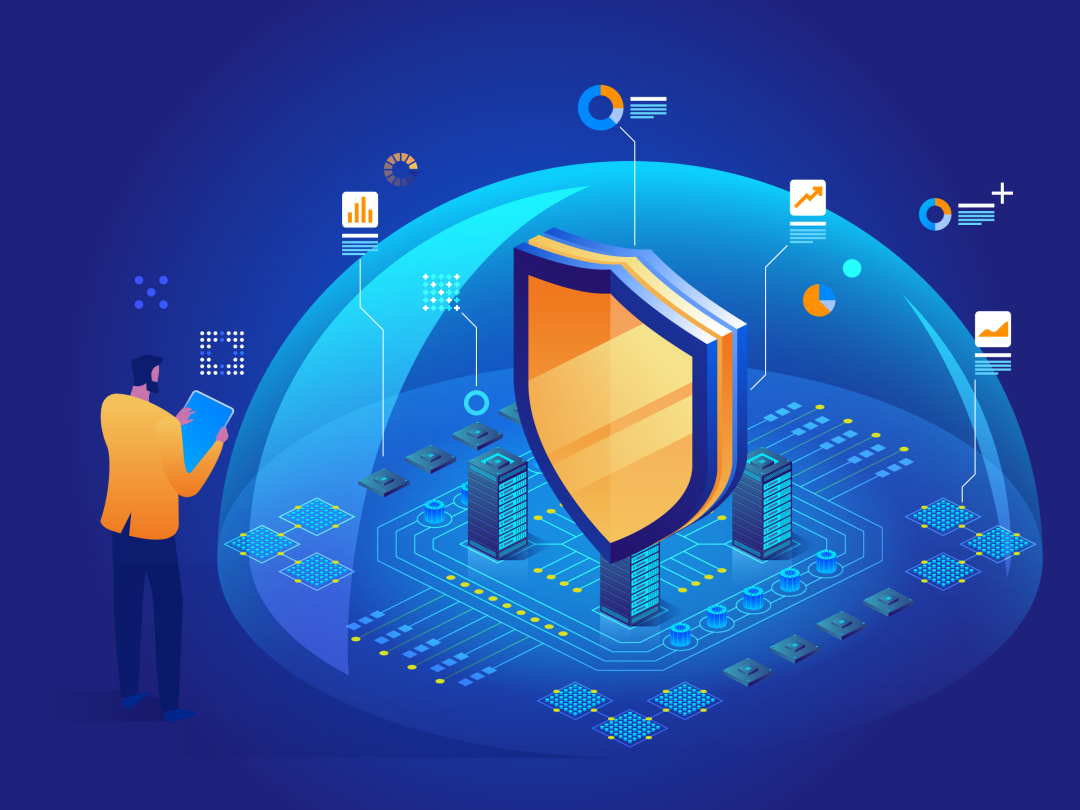
What Will You Learn?
CASP+ covers the technical skills needed to:
- Design, launch, and integrate secure solutions in a variety of enterprise environments
- Monitor, detect, and accurately respond to emerging security issues in an enterprise environment
- Manage the governance, risk, and compliance requirements of an enterprise
- Assess an enterprise’s cybersecurity
Certification Requirements
To take the certification, CompTIA recommends a minimum of ten years of general IT experience. At least five of these years have to be in security. You must renew a CASP+ certification every three years using CompTIA’s Continuing Education Units (CEUs). You’ll need to earn at least 75 CEUs to renew.
How Can You Apply for It?
The exam costs $466 and can be done either online or at various testing centers proctored by Pearson VUE.
9. Security+

Security+ is another certification offered by CompTIA. Having this certification validates your basic computer security skills in cryptography, risk management, and network design. With a Security+ certification, you can access entry-level job positions like cybersecurity analyst, security engineer, and security consultant.
What Will You Learn?
Under Security+, you will learn how to install and configure secure systems, conduct threat analysis on these systems and mitigate their security risks. By the time you are Security+ certified, you will have a thorough understanding of:
- Attacks, threats, and system vulnerabilities
- Risk management
- Cryptography and KPI
- Identity and access management
- Network architecture and design
Certification Requirements
Security+ has no specific requirements to join. However, CompTIA recommends getting the Network+ certification first and obtaining at least two years of experience in IT administration with a focus on security.
The certification also has to be renewed every three years. You can either renew by collecting 50 CEUs over the three years or by participating in training and getting higher certifications.
How Can You Apply for It?
The exam is offered both online and in-person through Pearson VUE. Candidates can apply for the exam and certification from the CompTIA website. The exam currently costs $370, and candidates must obtain a passing score of 750 out of 900.
10. Certified Ethical Hacker (CEH)

The certification is offered by EC- Council and focused on penetration testing. The accreditation demonstrates knowledge in pentesting, attack detection, and prevention, among other facets of ethical hacking. Some of the positions ideal for this certification include penetration tester, cybersecurity engineer, cyber incident analyst, and cloud security specialist.
What Will You Learn?
The CEH certification prepares its holders to scan and identify network weaknesses, equips them with knowledge of hacker tools, and teaches how to patch network vulnerabilities. With this certification, you will learn the five phases of ethical hacking, which are:
- Reconnaissance
- Gaining access
- Enumeration
- Maintaining access
- Covering tracks
Certification Requirements
To sit for the exam, you can either hold a CEH certification of version one to seven or have at least two years of work experience in information security. You can also sit for the exam if you’ve attended an official EC-Council training.
The CEH certification also has to be renewed every three years. Certification holders must earn 120 credits from the EC-Council Continuing Education (ECE) program over the three years and submit 40 ECE credits each year. Members also have to pay an annual $80 fee to keep the certification.
How Can You Apply for It?
You will have to pay a $100 application fee to take the exam at either the ECC Exam Centre or the Pearson Vue Centre. To get CEH certified, you will have to get at least 70% from the 4-hour exam.
11. Systems Security Certified Practitioner (SSCP)

The SCCP certification is another credential from (ISC)² designed for IT professionals working on an organization’s security systems. Holding the certificate proves your expertise in designing, implementing, and maintaining secure systems through network, communication, application, and overall systems security. The certification opens opportunities for job positions such as network security engineers, system engineers, database administrators, and security consultants.
What Will You Learn?
The SSCP certification exam is based on seven domains you will be expected to learn and master. These domains are:
- Access Controls
- Systems and Application Security
- Risk Identification, Monitoring, and Analysis
- Cryptography
- Incident Response and Recovery
- Security Operations and Administration
- Network and Communications Security
Certification Requirements
You will need at least one year of experience in one of the SSCP domains to qualify to take the exam. This requirement can be waivered for those with bachelor’s or master’s degrees in any cybersecurity program. You can still enroll for the exam without this experience and become an Associate of (ISC)², after which you’ll have two years to gain the required experience.
How Can You Apply for It?
Pearson VUE proctors the exam and it costs $249. To pass the exam, you must get at least 700 out of 1000 possible points.
12. GIAC Certified Incident Handler (GCIH)

GCIH is another certification from Global Information Assurance Certification (GIAC) that validates the holder’s ability to identify and resolve computer security incidents. The certificate is perfect if you want to become an incident handler, system administrator, security architect, or security practitioner.
What Will You Learn?
To satisfy the certification’s demands, you will have to learn common system attack techniques, vectors, security tools, and how to respond to these threats. Some of the topics covered in this certification are:
- Hacker Tools such as Metasploit, Nmap, and Netcat
- Incident Handling and Computer Crime Investigation
- Computer and Network Hacker Exploits
Certification Requirements
There are no specific requirements to take the GCIH certification exam. However, you’ll need to renew your certification every four years. GCIH holders have to collect 36 CPE credits within the period and pay a one-time, non-refundable $429 fee to renew their certification.
How Can You Apply for It?
To obtain the certification, you’ll have to pass the GCIH exam with a score of at least 70%. The exam is offered both online and in-person through ProctorU and Pearson VUE, respectively.
How To Choose the Right Cybersecurity Certification

Experience and Skills
The experience and skills you currently have will determine the certification path you would like to take. Some certifications require extensive work experience, while others have no prerequisites, which can help you narrow down what you can take. You’ll need to evaluate what skills and knowledge you have and identify the certification that will help you expand them and land your dream job.
Course Fees
Certification fees greatly vary depending on the level of the certification, the skills it covers, and its value on the market. Entry-level certifications are often cheaper than intermediate and advanced ones and may be the one for you if you’re on a budget. Course fees will help you find what you can afford and choose certifications with good ROI.
Specialization/Area of Focus
You can choose to specialize in plenty of cybersecurity sectors. You’ll need to evaluate the skills offered in the certification you want to see if they match your area of specialization.
Companies You Wish To Apply For
It’s wise to evaluate the job opportunities a certification offers before opting for it. You can also check what certifications your dream job requires to help narrow down your options.
Are Cybersecurity Certificates Worth It?

Course Reputation
Courses offered from reputable sources can make you a more interesting prospect and a valuable employee to the organization. Some employers even place more value on certifications than degrees, so having a certification from a reputable vendor helps you get noticed.
Course Support
Certifications are often the differentiator between applicants with degrees and those with additional certificates. Certifications support college degrees and other qualifications and prove that you have gained further knowledge and experience in the area.
Jobs You Can Apply To
Many current job postings require at least one certification, especially in the cybersecurity industry. Getting a certification opens up your job search to many more opportunities that you wouldn’t otherwise access without them.
Earning Power
Many employers place a higher value on employees with certifications compared to those with none. Certification provides you with access to higher-paying jobs and can even be leveraged to negotiate a raise or a promotion.
FAQs About Cybersecurity Certifications

Is Cybersecurity Hard To Learn?
Cybersecurity can be challenging and demanding compared to other programs, but everyone with the desire and willingness to work hard can have a successful cybersecurity career.
Can You Learn Cybersecurity Without Programming Knowledge?
Some cybersecurity programs do not require programming knowledge. However, most of them need some programming knowledge to advance faster and access more job opportunities.
How Long Does It Take To Learn Cybersecurity?
Most people take about two years to learn and apply the basics of cybersecurity. Additional certifications and programs will take more time, depending on the depth of information.
Is Cybersecurity a Good Career?
Cybersecurity is a great career to explore since the field is currently in high demand globally. Cybersecurity specialists also enjoy competitive pay with the additional benefits of remote work and good job security.
Is cybersecurity the right career for you?
According to Cybersecurity Ventures, the cybersecurity industry is expected to have 3.5 million high-paying, unfilled jobs this year. With Springboard’s comprehensive Cyber Security Career Track, you’ll work 1:1 with an industry mentor to learn key aspects of information technology, security software, security auditing, and finding and fixing malicious code. Learning units include subject-expert approved resources, application-based mini-projects, hands-on labs, and career-search-related coursework.
The course will culminate in a multi-part capstone project that you can highlight on your resume for prospective employers or use to demonstrate your technical knowledge in your job interview. The learning materials will also help prepare you to pass the globally-recognized CompTIA Security+ certification so you stand out when applying for cybersecurity roles.
Learn more about Springboard’s Cyber Security Career Track here.
The post Top 11 Cybersecurity Certifications That Will Get You Hired appeared first on Springboard Blog.





